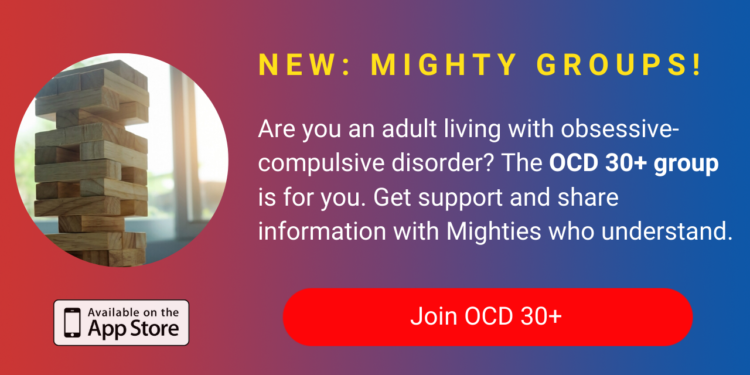5 Takeaways You May Have Missed at the International OCD Foundation's Virtual Conference
This year, due the COVID-19 pandemic, the International OCD Foundation held their annual conference virtually. I’d never attended the conference before this year, but when I saw it would be virtual I knew this was the year to try it out. What did I have to lose?
I am so happy I chose to attend. It was refreshing to hear so many people talk so openly and honestly about a disorder that, up until I was diagnosed a few years ago, I knew almost nothing about.
There were sessions and discussion groups related to every obsessive-compulsive disorder (OCD) topic, question and issue I could come up with, and many that I never would have thought of! It was a super informative weekend, and I’m still processing a lot of it.
Here are some of my initial takeaways as a first-time #OCDCon attendee.
1. There is no “perfect” path through OCD treatment and recovery.
When I was first diagnosed, I was so concerned about doing treatment the “right” way. But wow, there are so many different styles of treatment out there! At the core, of course is exposure and response prevention ERP), the evidence based treatment for OCD. However, there are so many approaches that can be used to supplement ERP. I learned a bit about acceptance and commitment therapy, dialectical behavioral therapy, compassion-focused therapy and the use of mindfulness in OCD treatment.
Even when following your unique treatment path, it is perfectly normal to have “slip-ups.” No one is perfect and imperfections can allow for even greater learning and growth!
2. Attitude and perspective are everything.
Seriously. Your frame of mind can change your entire recovery, for better or for worse. Here are some attitude and perspective shifts described in the conference that I found most helpful:
Taking a step back so you can notice and label your obsessions and compulsions for what they are. It is easy to be manipulated by this disorder and to only see what your OCD wants you to see. Mindfulness can help change that!
Having self-compassion before, during and after your treatment. In the words of Kimberly Quinlan, one of the therapists who presented multiple times throughout the weekend, “this is hard… but you can do hard things.” Give yourself a safe space to experience discomfort and move forward in your treatment, and refrain from self-criticism. OCD treatment is not easy!
Adopting a non-judgmental attitude toward your thoughts and feelings. When you assign value to your thoughts and feelings, you are reinforcing the negative thought patterns that OCD thrives on. Instead, adopt an attitude where you notice your thoughts without judging them. This will help you be kinder to yourself too!
Acting as though you don’t care what your OCD has to say. Let’s face it — OCD is a pretty convincing liar! But if you act as if those pesky intrusive thoughts are unimportant and keep on living your life, you take away some of the power that the disorder holds over you.
3. There is a difference between “pain” and “suffering.”
This was something touched on in multiple sessions, and it was something I had never really thought about before. In a session about mindfulness, Jonathan Hershfield noted that pain is a present experience, while suffering is that same experience accompanied by a narrative and resistance.
But pain doesn’t have to be suffering! Without a resistance to uncomfortable feelings, pain can be something you feel in the moment, something you can observe, take note of and move on from — not something that becomes an endless cycle of suffering. After hearing this, I will definitely look at my own OCD a little differently.
4, No matter what the themes are of your OCD, at the core, OCD functions the same.
OCD takes many forms and can focus on many different themes. At its core though, OCD is about uncertainty. Regardless of the content at the center of your OCD, the goal of treatment is the same: learning to live with anxiety and uncertainty, without responding to it through a compulsion. When you look at it through that lens, the content and themes are irrelevant.
5. You are not alone!
Whether you have OCD, are a treatment provider or you know a close friend or family member with the disorder, there is an amazing supportive community out there! It can be easy to feel like you need to struggle in silence, with so much stigma surrounding OCD and mental health in general. But there are so many people who have gone through similar experiences, and hearing their stories and perspectives can be empowering.
My favorite part of the conference was listening to so many people who truly understood what it meant to have OCD, either because they had it themselves or because they have worked to treat patients with the disorder. I am so grateful to everyone who made this conference come together… it was a wonderful weekend!
Getty image by fizkes


